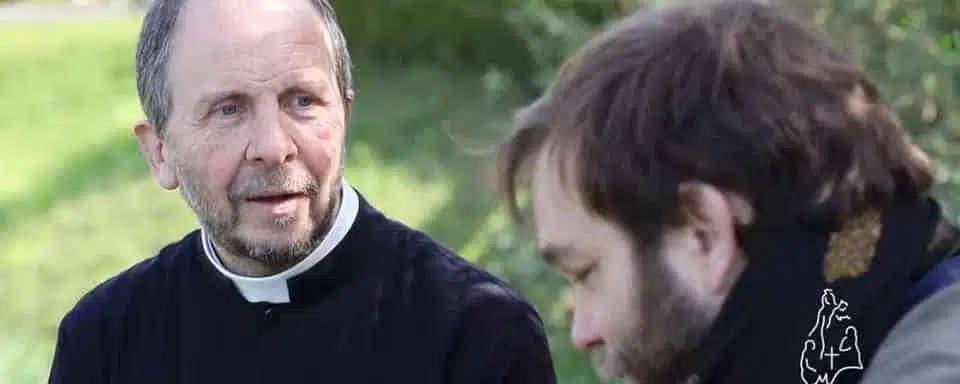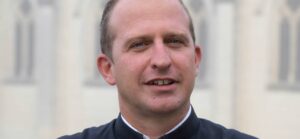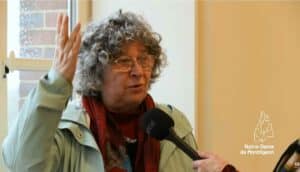The resurrection has been debated ever since the beginning of the Church. Is the resurrection of the body a myth? What is the belief in the resurrection of the body grounded on? If Jesus rose from the dead, can we get to know him? Can we get into contact with him? Msgr Martin Viviès answers for RCF (Catholic Radio-France).
The resurrection has been debated ever since the beginning of the Church.In the initial creeds professed by the catechumens during their baptism, especially that of Hippolytus, we observe an insistence on that of the resurrection of the body. Why? To refute a heresy that prevailed during the second century known as Gnosticism. This heresy is still present nowadays, in a new configuration, against which Pope Francis alerts us. It is about wanting to reserve the Christian faith to an elite who supposedly would apprehend the faith far better than the the average people. And, moreover, to confine faith to the realm of the spirit. However, the resurrection is a phenomenon that is altogether historical, physical, and transcendent, as indicated in the Catechism of the Catholic Church.
What is the belief in the resurrection of the body based on?
The event of the resurrection is a historical phenomenon that is grounded on the empty tomb and the rolled-up wrappings. Nothing extraordinary as such, yet the Gospel explains that on these signs Saint John believed in the resurrection. The Scriptures state that he “went in, … and he saw and believed”. Such were the signals that led him to believe, that is, to adhere to something beyond his capacities.
Furthermore, it also represents a transcendent phenomenon because things did not return to the way they were before Christ’s resurrection; Jesus has indeed lapsed into a new life. This is at the very core of the mystery. His apparitions to the Apostles and to a large number of disciples attest of it. Saint Paul referred to it several times in his letter to the Corinthians. When the risen Jesus appeared to his apostles, they did not recognize him. He assured them that he was no ghost, asked Thomas to touch him and finally to be given food. He was able to absorb fish. He did not need to eat, he was not hungry, but has a genuine body. However, his body lived in another realm.
Can we get into contact with the risen Christ?
Even if our senses are not able to see the resurrection, we can come into contact with the risen Christ. Through baptism, we are in relationship with him. We can hear him by means of the Gospel, and through the Church. We can even touch him for, by his resurrection, we can have a tactile link with him by means of each of the seven sacraments, as explained by Pope Francis in his encyclical letter entitled “Lumen Fidei” (Nn 31.40; cf CCC 1504); thus we touch the humanity of the risen Christ.
The Church tells us that the resurrection is a current and a historical occurrence which enables us to enter into a new life. By means of the resurrection, our present world has entered into a greater world. We can even say that God’s world has entered into History. If we consider that God is merely a pure spirit, an energy, a supreme being, we restrain him to a world that is totally sealed to ours. We deny the scope of bridges between the two. We are the ones who thus limit our reckoning.
In his encyclical letter “Fides et ratio” St. John-Paul II explained that if we admit the possibility of God entering History, then our reason expands because it thus becomes capable of apprehending things that are far beyond it.
Is the proof of the resurrection not also to be found in the fervor of the disciples, and subsequently in the Christian communities?
Already with St. Hippolytus’ creed, the early Christians insisted on the resurrection of the body. What is the body? It is every single human being that we encounter in our everyday life.
John affirmed: “what we have seen and heard, we proclaim now to you” (1 J 1:3) and he straight away stated “If anyone says, “I love God,” but hates his brother, he is a liar; for whoever does not love a brother whom he has seen cannot love God whom he has not seen.” (1 J 4:20)
He uses the same verb “orao” for both. For two thousand years, the Church has developed works of mercy because Jesus said that when he will return to judge the world, he would judge it on mercy: “For I was hungry and you gave me food, I was thirsty and you gave me drink, … in prison and you visited me.” (Mt 25, 35:40). It is our way of dealing with the concrete human being which enables us to factually come into contact with Jesus in the flesh
People’s charity, as well as one’s holiness, is a proof of the resurrection. Indeed, they live their ordinary lives in a heroic manner, as if they were inhabited by someone. In doing so, they bear witness to something that is not humanly possible. Their way of living and acting reveal someone else, we see that another life can pass into ours.
The Church repetitively establishes new saints. Mother Teresa, for example demonstrated by her existence that another life was possible and therefore that Jesus was really alive.
Want to learn more? Check our spiritual training sessions




